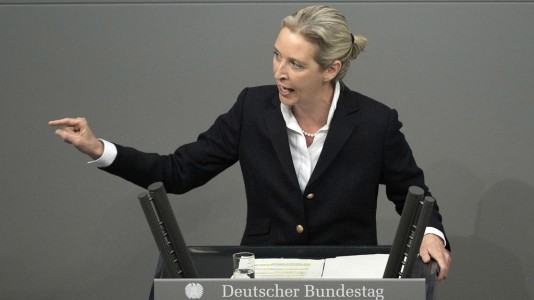A report published shortly before the world’s largest security policy conference held annually in Munich, Germany, shows that Russia is no longer the primary security concern of G7 countries. In fact, migration and terrorism have now overtaken the threat of Russia, which could explain the surge in support for anti-immigration parties in Europe.
The Munich Security Index 2024 conference report compiled a heat map of security risks based on a variety of survey questions. The map shows that in Germany, for example, migration as a result of war or climate change has the highest score in terms of risk based on the survey data, with it scoring 80 points, the highest score of any nation surveyed in the entire study. In addition, terrorism scored 74.
[pp id=101028]
While Russia was ranked as the number one threat in Germany in last year’s Munich Security Index, it has now slipped back to seventh place in the annual report. For the 2024 report, Russia only scored 67.
However, France was not far behind Germany in many areas, with a risk score of 71 for migration as a result of war or climate change, the second highest of any surveyed country, while radical Islamic terrorism received 80, making it France’s top concern. Russia only received 66.

The survey results also come at a time when the anti-immigration Alternative for Germany (AfD) and France’s National Rally parties are growing rapidly in popularity, as the Germans and French grow concerned about the record-breaking influx of migrants into their countries.
Overall, the risk assessment presented by Russia fell in all G7 countries in the Munich Security Index. It was among the top concerns in the 2022 year-end survey, but a year later it has dropped to fourth place overall.
Other countries, such as China, had much lower results for nearly every category, including migration (29), Islamic terrorism (30), and Russia (18).
The results come at a crucial moment in the war, as Ukraine seeks to shore up European support since the U.S. commitment to the war effort has wavered due to continued Republican opposition in the U.S. Congress.
Earlier this month, the European Union approved a €50 billion aid package for Kyiv, but it is already clear that this is not enough, as Ukraine’s financial needs are growing by the day. The survey’s conclusion that the German public is less concerned about the Russian threat than before indicates a shift in priorities in Europe as the intractable war enters its third year.
[pp id=99854]
The Munich Security Index 2024 also explores how the war in Ukraine competes with other geopolitical threats and priorities.
Four European countries were included in the report, and all of them have increased their concern about Iran. The threat of radical Islamic terrorism has jumped to second place from 16th last year. Population migration due to war or climate change, which was ranked second last year, has now moved up to number one. The report’s authors attribute the trends to Hamas’ Oct. 7 attacks on Israel, noting that the survey was conducted in October and November last year.
“Like in many other countries, the Oct. 7 Hamas terror attack appears to have increased concern about radical Islamist terrorism in Germany,” the report notes, adding that “Germany now has the highest level of concern about migration among the countries surveyed.”






